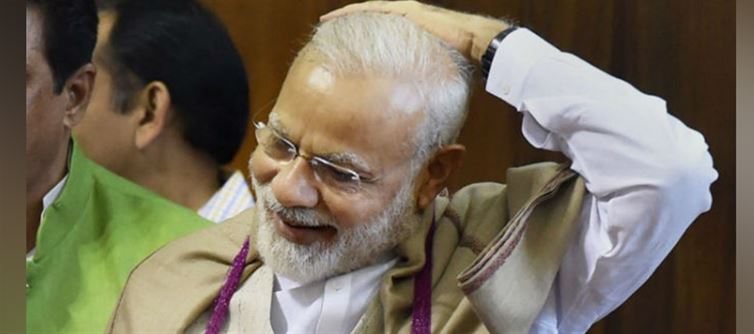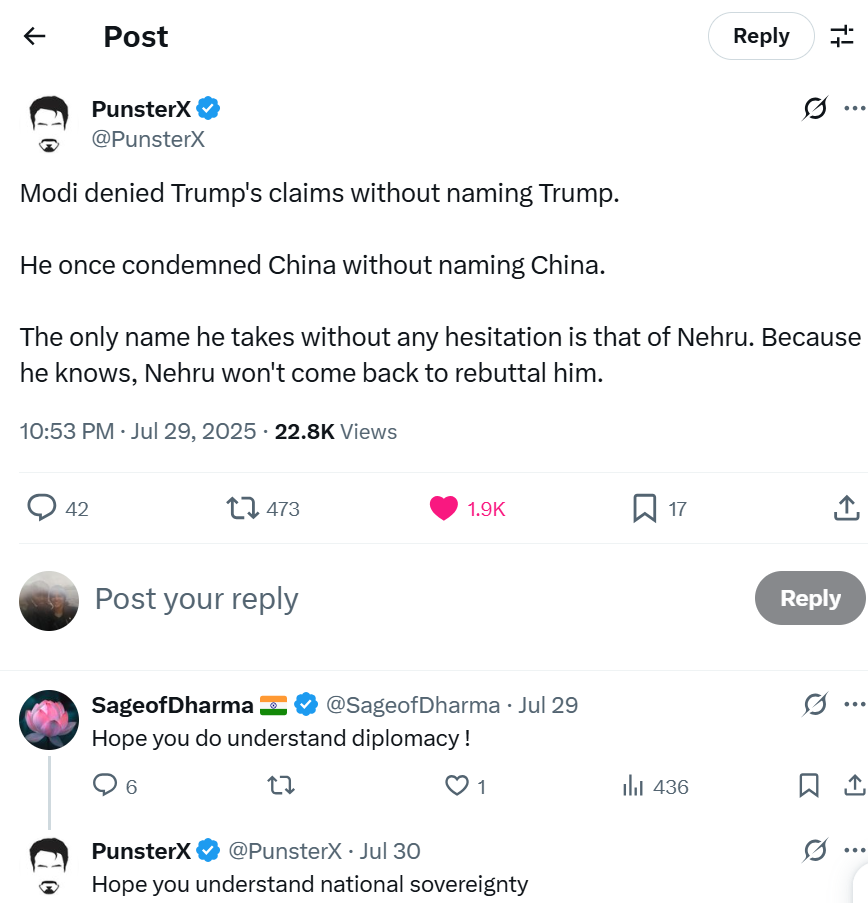
 This restraint wasn't due to lack of conviction but rather a diplomatic balancing act — an effort to avoid souring relations or inviting a media firestorm involving an ex-president of a powerful ally nation. The silence was calculated and cautious, in contrast to the assertive tone usually observed in domestic speeches.
This restraint wasn't due to lack of conviction but rather a diplomatic balancing act — an effort to avoid souring relations or inviting a media firestorm involving an ex-president of a powerful ally nation. The silence was calculated and cautious, in contrast to the assertive tone usually observed in domestic speeches.A similar pattern unfolded during Modi’s previous remarks about China, especially after the Galwan clashes in 2020. While tensions were high and public sentiment demanded clarity, Modi chose to condemn expansionist powers without directly naming China. This ambiguity, interpreted by critics as diplomatic tightrope walking, allowed the government to maintain a semblance of bilateral engagement while placating nationalistic audiences at home. Modi’s indirectness in such contexts suggests a careful weighing of geopolitical consequences, where names are left out deliberately to keep doors open for negotiations or to avoid escalation.
Ironically, the one name Modi invokes regularly — and often with a tone of reproach — is that of Jawaharlal Nehru. Whether the issue is Kashmir, China, or general governance, Nehru remains Modi’s go-to scapegoat. Unlike trump or Xi Jinping, Nehru is not around to issue rebuttals, defend his legacy, or challenge contemporary reinterpretations of history. This one-sided narrative has political utility — it allows Modi to frame the present as a correction of historical "wrongs" without fear of contradiction. In repeatedly targeting Nehru, Modi doesn’t just critique a former prime minister; he invokes a symbolic adversary who embodies an ideological past that Modi’s government seeks to overturn.




 click and follow Indiaherald WhatsApp channel
click and follow Indiaherald WhatsApp channel